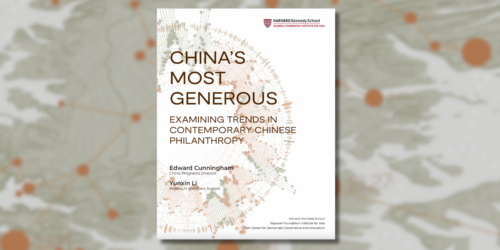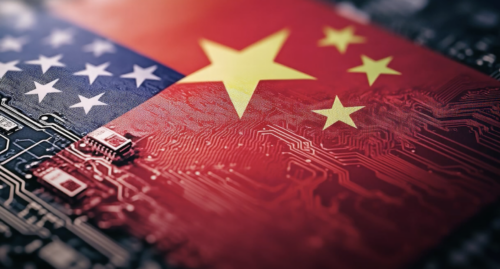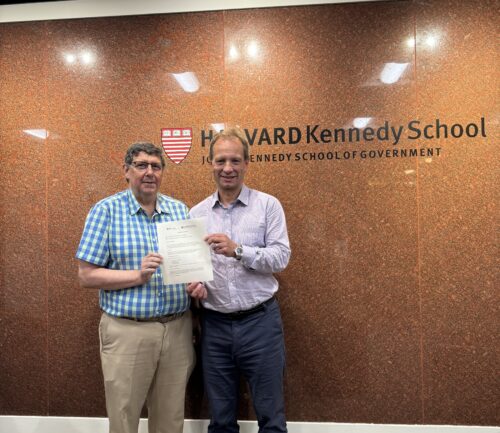As an endless stream of soldiers marching in close rank filled the broad avenues of Beijing to commemorate the 70th anniversary of the founding of the People’s Republic of China on Oct. 1, the streets of Hong Kong were convulsing with throngs of police and protestors locked in a standoff over the future of this former British colony and the durability of its semi-autonomous status within China.
At a recent JFK Jr Forum sponsored by the Kennedy School’s Ash Center for Democratic Governance and Innovation and the Fairbank Center for Chinese Study at Harvard, Ash Center Director Tony Saich explained that “what has set off the latest round of demonstrations was the proposal for an extradition bill that seemed to me somewhat benign.” The bill, which would have eased the extradition process between Hong Kong and mainland China, was criticized for underming basic legal protections enshrined in Hong Kong’s legal system — and was ultimately withdrawn by Hong Kong’s chief executive Carrie Lam.
Lam’s capitulation on the extradition bill, however, failed to placate protestors who were incensed by this latest move by Hong Kong’s Beijing-backed administration to further chip away at the “one country, two systems” policy that has governed Hong Kong since its handover to China in 1997. “It really takes away the last firewall that protects Hong Kong from mainland China by eroding the difference between the Hong Kong’s judicial system and the mainland system,” noted University of Notre Dame political scientist Victoria Tin-bor Hui, who along with Shorenstein Center Fellow and former New York Times Beijing Bureau Chief Jane Perlez joined Saich on stage at the Forum.
What had started out last spring as a protest over a legislative proposal quickly spiralled into a larger, ongoing confrontation over Hong Kong’s identity and relationship to the mainland. “Among people who are 30 years and younger, they increasingly see themselves as Hong Kong people,” noted Hui who herself was born in Hong Kong. This generational shift towards a more uniquely Hong Kong-based identity has developed, Hui argued, as a response to what many younger Hong Kongers see as the erosion of the democratic guarantees made when the city was returned from British rule in 1997. “The proportion of people who see themselves as Hong Kong-Chinese has been going down and down. And people who see themselves as Hong Kong people, it’s been going up and up and up,” Hui said.
With the protests showing no signs of ending, Beijing has been grappling with how to respond. With China’s leadership making provocative moves, such as doubling the number of paramilitary People’s Armed Police stationed across the border in Shenzhen, the international community is on edge. ”People I spoke to in Beijing … said they’re going to be much cooler this time than they were in 1989; it’s a very different situation,” said Perlez contrasting the Communist Party’s relative caution towards the unrest in Hong Kong to the decision 30 years ago to send in the military to crack down on demonstrators in Tiananmen Square.
Perlez suspected that Beijing was employing a strategy of waiting out the protestors in the hopes that the demonstrations would eventually subside. “They seem to think that time is on their side,” she said.
To avoid the bloodshed of 30 years ago and reach a resolution to the crisis, Saich reminded the audience that “there has to be compromise on all sides. One of the things we saw in Tiananmen in 1989 was that all sides were so firmly convinced that right was on their side that you got to a point where it was impossible to enter into serious dialogue.”
Whether China’s leadership and Hong Kong’s pro-democracy movement can find a way to compromise remains to be seen.



